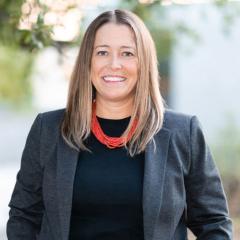Strategic review priorities guided by shared leadership
With the transition to my leadership, the Board of Trustees recognized the need for a comprehensive review of the Switzer Foundation’s strategies, programs, and impacts. It has been nearly a decade since the foundation has engaged in strategic planning or program evaluation, and our network and the world have changed tremendously since that time. In 2018, Switzer updated its mission, vision, and values to elevate advancing social equity alongside improving environmental quality. Strategic review is the essential next step in that process. As we seek to advance equity and justice with our work, we need to ask: How should our programs change? How do we best steward our resources to support those programs? What leadership do we need to govern the foundation and support the network into the future?
The board and staff began by identifying information needed to support the strategic review, prioritizing questions about how the foundation’s programs are changing and how well they are meeting the needs of future environmental leaders. Staff compiled information on fellowship and grant program trends, including Switzer Fellowship application patterns, changing representation in fellowship and grant programs, fellowship value over time, and Leadership Grant program outcomes. Fellow Brian Johnson and his organization, Inform Evaluation & Research, conducted a survey and focus groups to assess fellows’ needs and opportunities, evaluate outcomes of grant awards and network activities, and compare to peer fellowship and leadership development programs. Consultant Christine Ageton conducted a network assessment to understand current Switzer Network engagement and help us incorporate best practices in network activation moving forward.
We formed two collaborative working groups of Fellows Advisory Committee (FAC) members and staff to develop recommendations for updating our grant programs and funding options. The Updating Grant Programs working group considered the topical focus and geographic restrictions of the fellowship program, the amount of the fellowship award, and trade-offs in spending on the fellowship program versus network activities; they also evaluated the equity and effectiveness of the foundation’s other grant programs. The Evaluating Funding Options working group considered several possible approaches to ensure funding to support the foundation’s grant programs and networks into the future; these included defining the strategic lifespan of the endowment, developing a spending policy, and examining needs and opportunities for fundraising and partnerships.
The strategic review process culminated in a two-day virtual retreat in December 2021. Participants included trustees, staff, FAC members, and a facilitator. We opened the retreat with a generative discussion about trust-based philanthropy, an initiative that seeks to help grantmakers advance equity, shift power, and build mutually accountable relationships. We discussed the ways in which the Switzer Foundation already embodies some core values of trust-based philanthropy, and how we can further apply best practices. Next, drawing on the working group’s recommendations, we identified nine potential areas for future work, prioritizing four ideas for initial implementation.
Near-term priorities
-
Develop an ambassador program to expand fellowship outreach to underrepresented institutions and disciplines
-
Implement recommended changes to the foundation’s other grant programs, such as increasing award amounts, expanding outreach, and creating mentoring or cohort programs
Longer-term priorities
-
Develop a spending policy that reflects the foundation’s mission and values
-
Explore opportunities to expand the geography of the fellowship program to include a new region
As a foundation, we recognize that how we make decisions is just as important to achieving our mission as what we decide. We are very proud of the inclusive model we created for the strategic review, the strong thinking it generated, and the clear direction and support we have for advancing several important initiatives. Additionally, the strategic review process provides an important example of the foundation’s commitment to shared leadership. Participation by the FAC brought the best of the network to transform our programs and finances and embodied the committee’s purpose to contribute strategic advice to the foundation.
As we begin planning for implementation of these strategic priorities, we look forward to continuing to work closely with fellows to ensure our new directions reflect our equity goals and best support the Switzer Network of the future.
